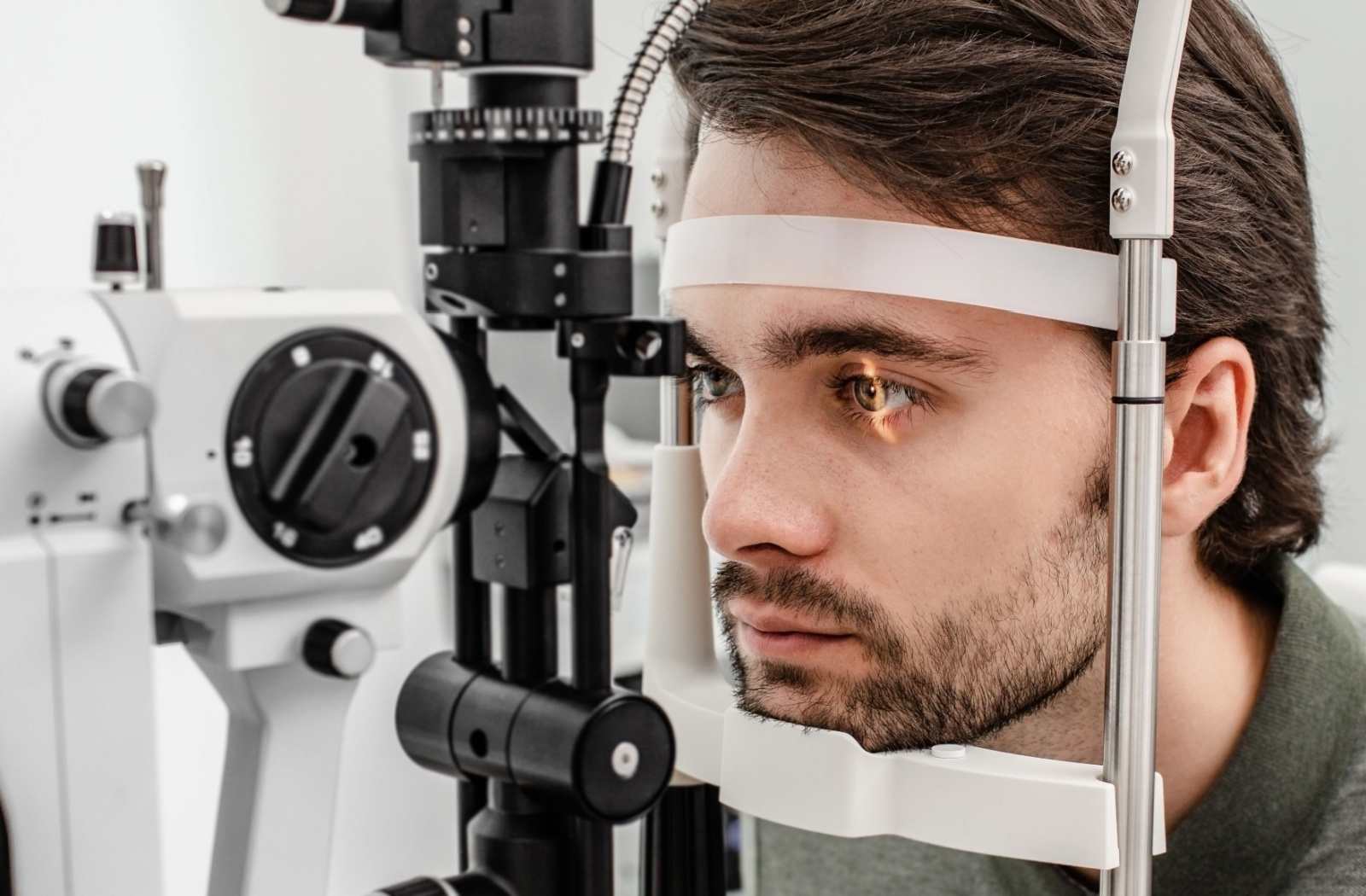Dry eye disease is a common condition that occurs when there’s a problem with your tear production. Symptoms include irritation, grittiness and blurry vision. But can it lead to blindness?
Mild to moderate dry eye disease would rarely cause vision loss. However, severe, untreated dry eye disease can lead to vision complications, corneal scarring and vision loss. Your optometrist can assess and properly diagnosis the causes of your dry eye and greatly reduce the risk of complications in the long term.
What Is Dry Eye Disease?
Dry eye disease occurs due to a dysfunction with the tear film, which means you either don’t produce enough tears or don’t produce the right quality of tears. The tear film is essential for keeping your eyes healthy, nourished and comfortable, so when there’s a problem, you can experience a range of other symptoms, like:
- Blurred Vision
- Burning
- Grittiness
- Irritation
- Foreign body sensation
You may also experience eye fatigue. This is more than just minor eye strain—it’s a signal from your eyes that something is wrong, and they need help.
What Causes Dry Eyes?
The tear film is composed of 3 layers: oil, water, and mucus.
The mucus layer is the innermost part of the tear film. It helps the tear layer stick to the eye and spread it evenly across the surface. The water layer is the middle layer which protects and nourishes the eye, helping wash away debris and dust.
The third and outermost layer is the oil layer. The oil layer is essential to reduce evaporation of your tears. The oil is produced in the meibomian glands and when healthy it reduces evaporation of the water layer. When there’s a problem with the oil layer, the water layer evaporates off, exposing the eye to our dry and irritating environment. When this occurs, it’s called meibomian gland dysfunction (MGD). This is the most common and treatable cause of dry eye disease.
While this is the most common cause of dry eyes, it’s not the only one. Dry eyes can also be caused by:
- Aging, as tear production naturally decreases with age
- Certain medications like antihistamines or decongestants
- Autoimmune diseases
- Environmental conditions, like dry or windy climates
- Allergies
- Hormonal changes, especially in women during menopause.
Because there are so many potential causes of dry eye disease, a proper diagnosis is key. Fortunately, your optometrist can help. They will perform a thorough eye exam and determine what’s causing your dry eyes.
Can Dry Eyes Make You Go Blind?
Dry eye disease can cause blurry vision and irritation. It’s uncomfortable, frustrating, and often chronic— sometimes you may not feel it at all but in other environments, it returns.
If left untreated, dry eye disease can rarely lead to long-term vision loss due to corneal damage or scarring. However, all the other symptoms can negatively affect your life, so if you suspect you have dry eyes, seek care. There are effective treatments to help restore visual comfort and quality of life.
How Is Dry Eye Treated?
Even though it’s chronic, dry eye disease can be managed. And with the right treatment, their impact on your life can become almost negligible.
It starts with a visit to your optometrist, where they can perform a thorough examination of your eyes. Then, they’ll likely recommend one or more of the following:
- A specific artificial tear based on your diagnosis
- Warm compresses and eye massages
- Omega-3 fatty acid supplements to provide better oil production
- Prescription eye drops to help reduce inflammation and stimulate tear production
In addition to this traditional therapy, your optometrist may recommend an in-office treatment, such as:
- Intense pulsed light (IPL). This treatment targets and reduces inflammation, a proven source of dry eye symptoms
- TempSure radiofrequency (RF) or Systane iLux2 both heat the meibomian glands to reduce meibomian gland obstruction and permit better oil flow
Your optometrist will make a recommendation specific to your unique situation.

Where to Get Help for Your Dry Eyes
Dry eye disease can still be an extremely frustrating experience. At In Focus Eyecare, we have a team of professionals and an extensive array of dry eye diagnostic and treatment tools dedicated to helping you. Book an appointment with us today for a proper diagnosis and start on your journey to hydrated, comfortable eyes.





